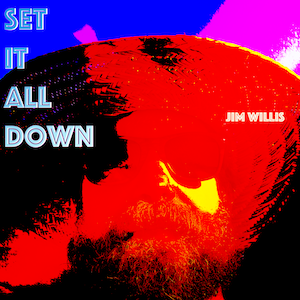“I may not be as strong as I think,” the old man said. “But I know many tricks and I have resolution.”
– The Old Man and the Sea, E. Hemingway.
At baseline, my memory is only so-so.
For example, I can remember chord progressions to songs and lyrics only with a lot of rehearsal. I need cheat sheets for a lot of stuff in my day to day life. My autobiographical memory —my memory of past events — is especially not so good.
Vonnegut said we’re all just “huge, rubbery test tubes with chemical reactions seething inside.” Well, my chemical reactions are such that my brain doesn’t encode very well the things that have happened to me. Or, if it does encode them, I can’t recall them very easily. Either way, it’s the way I’m built.
Fortunately, I’ve got some good compensatory skills. I’ve found a bunch of tools to help support my memory in ways that are good and beneficial.
I am a master todo list maker and checklist reviewer and routine-doer. Siri has been one of the greatest things to ever happen for people like me. A half-dozen times a day or more I ask my watch to remind me about something I need to do. I am being supported at any point in time by a constellation of technologies that not only helps me compensate for my dodgy autobiographical memory but may in fact allow me to flourish in a way that I wouldn’t if I didn’t have to compensate.
There are a host of possible explanations for why memory —and specifically autobiographical memory—is weaker in some people. Hormone/thyroid disregulation can cause encoding issues. Mood disorders. The way we are socialized (the nurture part of nature v. nurture).
After years of trying to figure out what is going on, I’ve settled instead on trying to figure out what I can do to improve my autobiographical memory.
One of the best things I’ve done is to keep a journal. I use an app called Day One. I write down all sorts of stuff in there like when our mattress got delivered or when I get a cold or when I taught my son how to play a G-run on guitar.
How Journaling Helps with Memory
There are, I’ve determined, two primary ways that I can improve upon my baseline autobiographical memory and journaling supports both of them: Noting and Rehearsing.
Noting
1.) By recollecting with as much precision as possible certain event: what I saw, what I remember and writing that down in my journal. I have many days in my journal where the entry is simply a list of three specific things that I remembered seeing from the previous day.
But the point here is, especially for positive events or accomplishments, to pause and take a beat and note how the positive event felt and the physical details surrounding that event.
Our brains are wired to hold on to negative stuff and let the positive stuff fall away. By noting with detail the positive stuff it sort of coaxes the brain to hold on to the memory a bit better.
So whenever possible, when something positive happens, when I wrap up some minor or major accomplishment, I try to note the details down in my journal.
Rehearsing
2.) By regularly rehearsing and revisiting past events. This is the social component of autobiographical memory. We all know friends and family members who like to tell stories about the past. Those people have good autobiographical memories but, importantly, because they have a bias towards retelling those stories, they are constantly improving their autobiographical memory.
It can be a vicous or virtuous cycle. If you have good autobiographical memory and like to tell stories about things that have happened to you, that muscle will keep getting stronger. If you don’t have a great autobiographical memory to begin with, you won’t tell a whole lot of stories, won’t revisit your memories and the muscle will continue to atrophy.
So, I have a strongly ingrained habit of not only writing in my journal but also reviewing my journal. Day One’s “on this day” feature is especially great as it will show entries from this date from prior years in my journal and it’s valuable and helpful to revisit those entries as, I hope, through revisiting them I’m making stronger connections in my brain.
Slippery Quarantine Time
Over quarantine, I’ve noticed a different kind of slipperiness to my memory: I am having a difficult time gauging the passing of time. I know I’m not alone in this. Days feel like weeks but whole seasons feel like they go by in a week, too.
Time feels like it is passing both slowly and quickly. It is disorienting, like looking out the window of a speeding train when another speeding train appears alongside and it all of a sudden feels like you are going both fast and slow.
Day One’s handy “On this day..” feature is useful here but knowing what I was up to last year on this day (or 5 years ago, etc.) is not helping to orient me in time. But I have found another practice using Day One that has helped orient me a bit more precisely in time.
Over the past few weeks is now to revisit in my journal not only the entries from “on this day” over the past few years but to also look at:
- on this day last week
- on this date last month
- on this date six months ago
It’s by reviewing this breadcrumb of events at different time scales that I am slowly starting to regain a sense of the passing of time. Sometimes the events referenced in my entry from last week feel like they happened yesterday, othertimes those events feel like distant memories. Either way, reviewing the entries with this cadence feels helpful.

It’s not making time feel less slippery but it is does help me get out of the whiplash feeling that time has left a lot of people feeling during quarantine.
With the help of another Day One forum member, I’ve got a pretty useful iOS shortcut put together that you can run to view events with this cadence [download here]. I hope you find it helpful! If you do, I’d love it if you drop me a line and let me know how you’re using it. Note that while we wait for the developers at Day One to update the Mac app to work with shortcuts, this shortcut only works on iOS devices at the moment.







